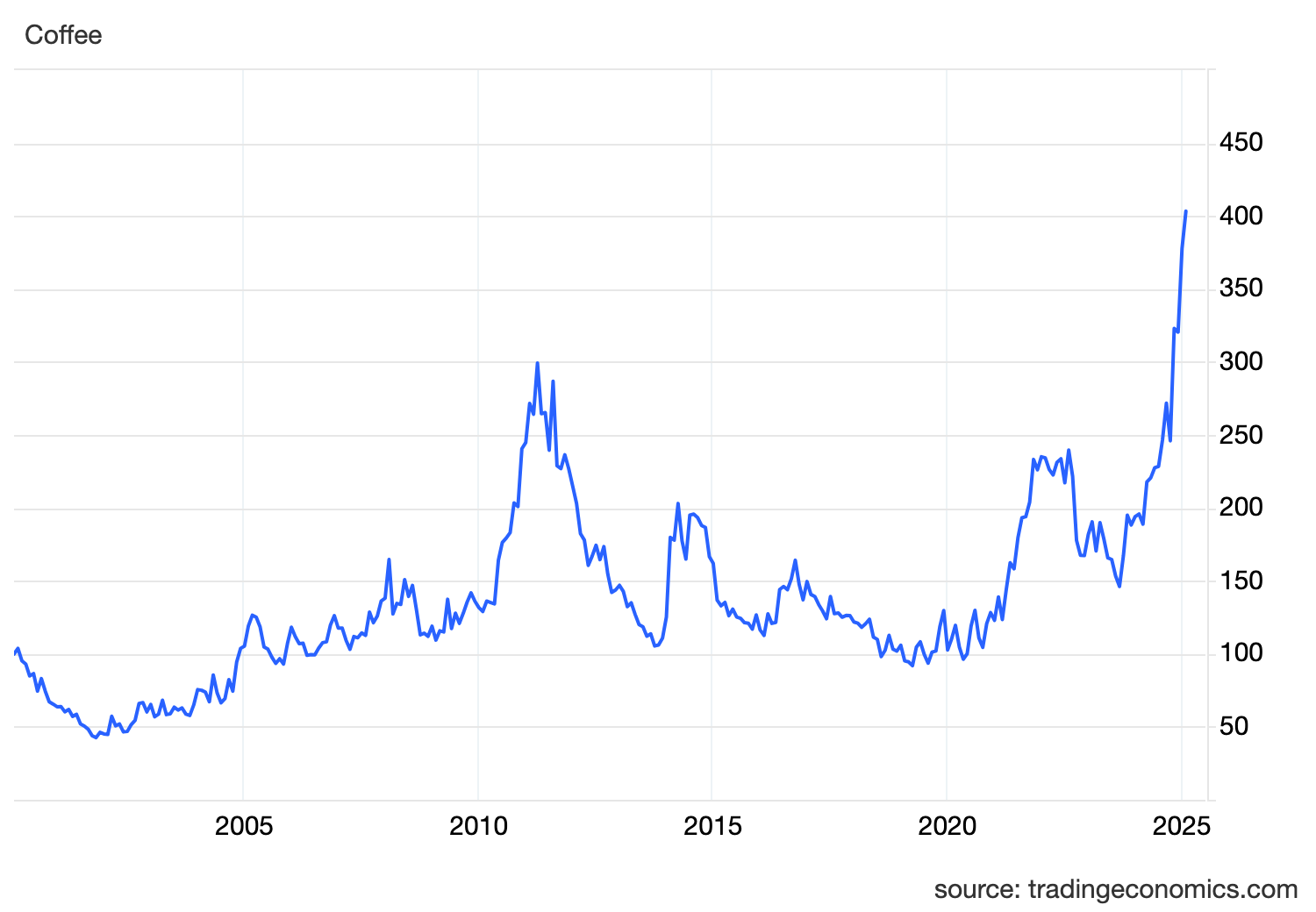There are so many energy drinks on the market these days that it can be hard to know which, if any, you should drink. Modern advanced energy drinks like Celsius offer more than just a caffeine boost. Packed with other performance-enhancing ingredients like BCAAs, guarana, taurine, and ginger root, this energy drink is popular among athletes.

But are these ingredients beneficial? Are there adverse side effects? How much caffeine does Celsius have, and is it too much? Find out in this detailed look at the Celsius energy drink.
How Much Caffeine Is In Celsius Energy Drink?
Does Celsius have caffeine? Let’s get straight to the point before we dig a little deeper into the Celsius brand.
There are 200 milligrams of caffeine found in a 12-ounce can of Celsius Original, equivalent to 16.67 mg of caffeine per fl oz.
This amount of caffeine in a serving is generally considered safe. However, be aware that caffeine is a stimulant, and excessive caffeine consumption can lead to adverse side effects, especially for those sensitive to caffeine.
The Caffeine Content In The Different Types Of Celsius Drink
How many mg of caffeine in Celsius? The Celsius energy drink caffeine content varies among the brand’s five product lines:
- Celsius Original: 200 mg per can
- Celsius Heat: 300 mg per can
- Celsius Stevia: 200 mg per can
- Celsius BCAA: 100 mg per can
- Celsius On-The-Go: 200 mg per packet
The flavors of Celsius energy drink are unrelated to the caffeine content, even for flavors that seem like they might have more caffeine, like Celsius Peach Mango Green Tea or Sparkling Cola.
Which Celsius Drink Has The Most Caffeine?
Celsius Heat has the most caffeine, with 300 mg of caffeine per 12 fl ounces. This caffeine level is similar to other highly caffeinated energy drinks like Bang, which has 300 mg of caffeine in a 16-ounce can.
Is Celsius High In Caffeine?
Yes, Celsius Energy Drink is high in caffeine. The 200 mg of caffeine per can found in most Celsius products puts it in the moderate-to-high caffeine category compared to other energy drinks. The higher caffeine content of Celsius Heat, with 300 mg of caffeine, makes it one of the energy drinks with the highest caffeine content.
Anyone who wants to limit their caffeine intake should consume Celsius energy drink in moderation or switch to an alternative. There are only 60 mg of caffeine in Mio energy drinks and only 80 mg of caffeine in Red Bull. Soft drinks typically contain caffeine in even lower amounts.
How Long Does Celsius Caffeine Last?
Most people begin to feel the effects of the caffeine in Celsius after 15 to 30 minutes and continue to feel them for up to 2 to 3 hours, with a peak around 1 hour. However, the half-life of caffeine is 5 hours. So even 5 hours after a can of Celsius, you still have about 100 mg of caffeine in your system.
How Much Caffeine In Celsius Energy Drink Compared To Coffee?
The caffeine found in a cup of coffee is much less than in a can of Celsius. A typical 12-ounce brewed coffee has from 100 to 160 mg of caffeine. It is hard to know how much caffeine exactly because the caffeine content is influenced by the type of coffee bean, the brewing method, and the recipe of preparation.
Note that Celsius drinks also have stimulants besides caffeine. Studies have reported that drinking one can of Celsius can feel like drinking roughly 5 cups of brewed coffee (1).
Is Celsius as healthy as coffee?
No, Celsius isn’t as healthy as coffee. While it is more highly caffeinated and includes a host of “healthy” additives not found in coffee, little scientific research supports Celsius as a part of a healthy diet. However, there may be specific health benefits of Celsius energy for those looking to fuel athletic performance.
The combination of antioxidants and caffeine in coffee is well-studied and linked with numerous health benefits, including an overall longer life (2). So coffee is a great alternative to Celsius drinks when you need a pick-me-up.
Does Celsius have more caffeine than Coke?
Yes, Celsius has more caffeine than Coke. A can of Coke Classic has just 32 mg of caffeine, about one-sixth of the caffeine found in Celsius Original. A can of Diet Coke has 46 mg of caffeine, and a can of Coke Zero has 34 mg.
Is Celsius Stronger than Monster?
Yes, a 16-ounce can of Monster energy drink contains 160 mg of caffeine, which is less than in 12 ounces of Celsius Original. A can of Celsius Heat has nearly twice the caffeine content of a Monster.
What Makes Celsius Different from Other Drinks?
Celsius energy drink differentiates itself from the crowded energy drink market by specifically targeting athletic performance and weight loss. It doesn’t just pep you up with high levels of caffeine, it includes a host of other ingredients designed to fuel your workout, speed recovery, and encourage weight loss.
Celsius calls this proprietary blend of ingredients MetaPlus. It includes green tea, EGCG, guarana seed extract, caffeine, taurine, and ginger root. The combination is designed to boost metabolism and increase calories burned.
The different types of Celsius drinks have different targets. Celsius Heat is advertised for pre-workout. Celsius BCAA includes branched-chain amino acids used to build and repair muscles.
What is the Celsius drink?
Celsius is a popular energy drink targeted at athletes, anyone looking to live a healthy lifestyle, and people trying to lose weight. It’s available in various flavors, some of which are carbonated.
Learn more about Celsius in this video:
Celsius contains many active ingredients besides caffeine, including taurine, guarana, glucuronolactone, green tea leaf extract, ginger extract, vitamins B and C, and chromium. It is sweetened with sucralose, generally considered one of the safest artificial sweeteners. There are also natural flavors and citric acid.
The exact composition of ingredients varies slightly across the product lines. Celsius Heat energy drink adds more caffeine plus L-citrulline. Celsius BCAA adds branched-chain amino acids, tart cherry juice, vitamin D3, and electrolytes. Celsius Stevia replaces the sucralose with stevia.
Are Celsius Energy Drinks Considered Healthy?
Celsius claims to be healthier than traditional energy drinks like Red Bull or Monster. But there is more to a healthy energy drink than just pumping carbonated water full of vitamins, minerals, and stimulants.
Dr. Frank LoVecchio, a medical toxicologist and professor, explains that Celsius’s added vitamins and minerals probably don’t contribute to overall health, even if the advertising looks good (3).
“Most people in the United States don’t need vitamin supplementation, because they get most of it from their diet. It’s always better to get your vitamins from your diet than just taking a pill or something synthesized in a lab.” – Dr. Frank LoVecchio
Some health benefits of Celsius drinks are derived from their high caffeine content. Consuming caffeine has several scientifically proven benefits, including increasing energy, improving mood, stimulating brain function, and warding off brain diseases like Alzheimer’s and Parkinson’s.
There is little evidence to suggest that Celsius is a valuable or necessary component of a healthy diet. But it may help you feel energetic or motivated to exercise, which can benefit your overall well-being.
Is Celsius bad for you?
The caffeine in Celsius is not inherently bad for you. Caffeine is generally considered safe in moderate doses and even conveys certain benefits. The FDA defines an acceptable dose of caffeine as no more than 400 mg per day for an average adult, equivalent to two cans of Celsius Original.
Consuming too much caffeine can lead to many mild side effects, including jitters, anxiety, upset stomach, headaches, and insomnia. Excessive caffeine consumption can also lead to the development of caffeine tolerance.
Note that while Celsius contains 200mg of caffeine per 12 ounces according to the label, the cocktail of stimulants in the proprietary MetaBlend might make you feel like you’ve had much more. So drink Celsius in moderation. We suggest no more than a can a day.
There is considerable evidence that the taurine found in Celsius and other energy drinks should be avoided by young adults, teens, and children. The cocktail of stimulants in Celsius may be especially harmful to young people, leading to negative cardiovascular effects and insulin sensitivity (4).
Why is Celsius not FDA-approved?
Energy drinks are considered to be “dietary supplements” and, as such, do not require FDA approval to be produced and sold. There is conflicting information available about whether Celsius is FDA-approved, but in this context, it hardly matters. The main reason it wouldn’t be approved is the inclusion of guarana, a stimulant not regulated by the FDA.
Final Thoughts
Celsius Original has 200mg of caffeine per 12-ounce can, which is half the recommended daily caffeine intake limit. Celsius Heat has 300 mg of caffeine per can. Both energy drinks are high in caffeine. But more importantly, the combination of stimulants found in Celsius will pep you up above and beyond what their caffeine content suggests. So tread carefully with this energy drink.
FAQs
Why was Celsius sued?
Celsius was sued for claiming to be preservative-free when it actually contains citric acid as a preservative. The brand claimed citric acid was used as a flavor booster not a preservative, but agreed to settle anyway. Citric acid is a common food additive used for flavor and preservation (5).
Why is Celsius banned by the NCAA?
The NCAA banned Celsius because it contains ginseng, guarana, L-carnitine, and taurine – all of which are also banned by the National Olympic Committee and the World Anti-Doping Agency (WADA). While the NCAA does not ban caffeine, it is regulated.
Where does Celsius caffeine come from?
The caffeine content in Celsius Energy drinks comes mainly from the seeds of the guarana plant, an Amazonian plant renowned for its energy-boosting properties. A smaller amount is from green tea leaf extract. The caffeine found in Celsius energy drink is not from coffee or caffeine anhydrous.
Is Celsius a pre-workout or energy drink?
Celsius is marketed as both a pre-workout and energy drink. According to the brand, you can consume Celsius 20 minutes before vigorous exercise to enhance the benefits of your workout. But it can also be consumed anytime as a substitute for other caffeinated drinks – remembering that Celsius drinks contain more caffeine than most others. Celsius Heat is specifically marketed as a pre-workout drink.
References
- MARCA. (2023, April 13). NCAA Banned Substances: What caffeine is banned by the NCAA? Retrieved from https://www.marca.com/en/ncaa/2023/04/13/643810dae2704efe6d8b4609.html
- Antipolis, S. (2022, September 27). Coffee drinking is associated with increased longevity. Retrieved from https://www.escardio.org/The-ESC/Press-Office/Press-releases/Coffee-drinking-is-associated-with-increased-longevity
- Evans, O. (2021, September 22). Why Is Everyone Drinking Celsius? Retrieved from https://www.thecut.com/2021/09/why-is-everyone-drinking-celsius.html
- Basrai M, Schweinlin A, Menzel J, Mielke H, Weikert C, Dusemund B, Putze K, Watzl B, Lampen A, Bischoff SC. Energy Drinks Induce Acute Cardiovascular and Metabolic Changes Pointing to Potential Risks for Young Adults: A Randomized Controlled Trial. J Nutr. 2019 Mar 1;149(3):441-450. doi: 10.1093/jn/nxy303.
- Owen, E. (2023, February 7). Celsius Drinkers: You Could Get Up to $250 from a New Class-Action Lawsuit. Retrieved from https://www.foodandwine.com/celsius-class-action-lawsuit-7106589











